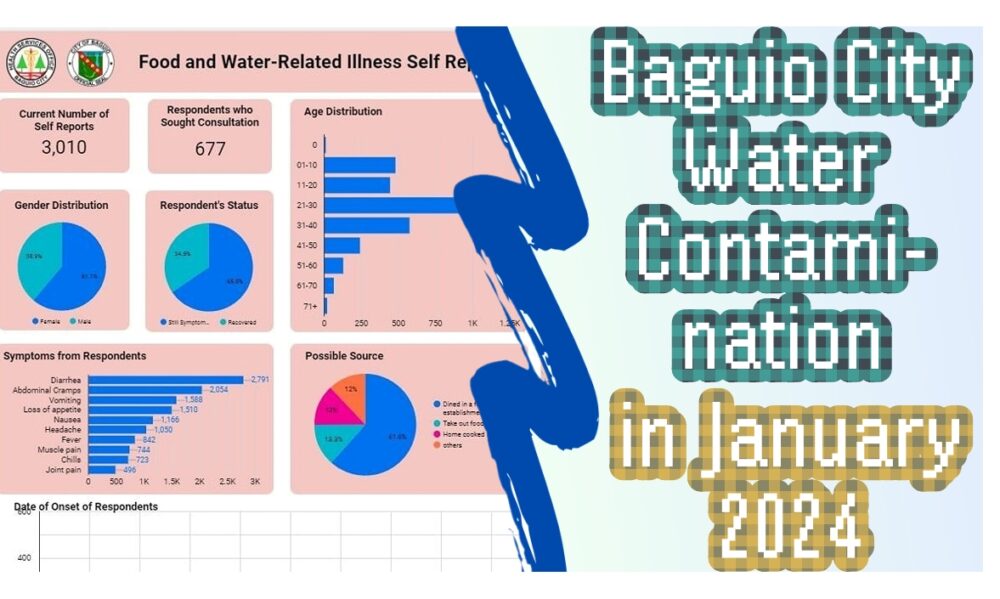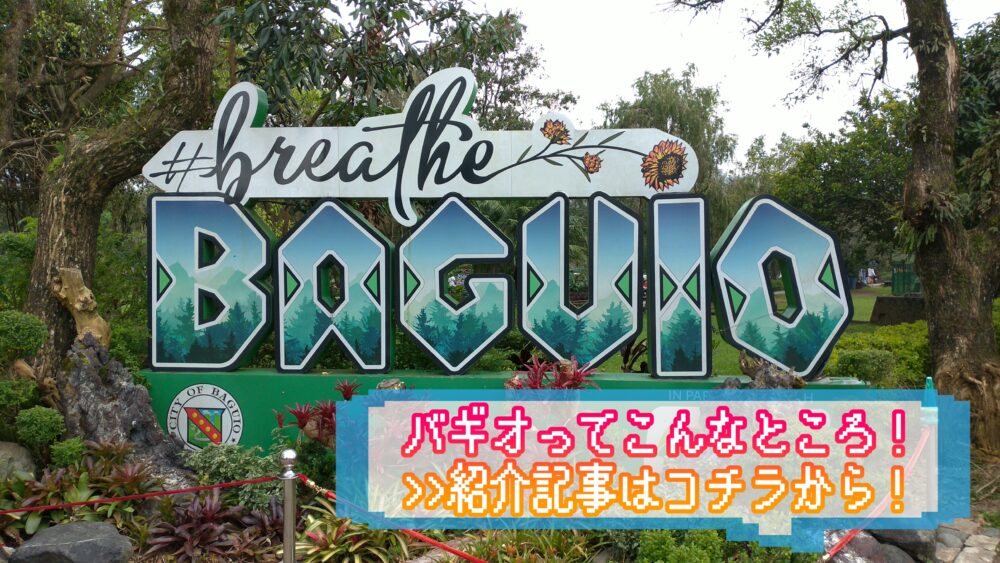There is a news that has been making a lot of noise about Baguio in the past few days. It is water pollution. Many people are suffering from diarrhea and gastroenteritis. The immediate risk seems to be avoidable with minimal measures, and safety is ensured.
About January and February in Baguio
January and February are said to be the coolest months of the year in Baguio. The lowest temperature is about 12 degrees Celsius, and the highest is about 20 degrees Celsius. During the day you can get by with just a T-shirt, but in the mornings and evenings it can get quite chilly without a jacket. This is the best season during my stay, when the environment is at its best.
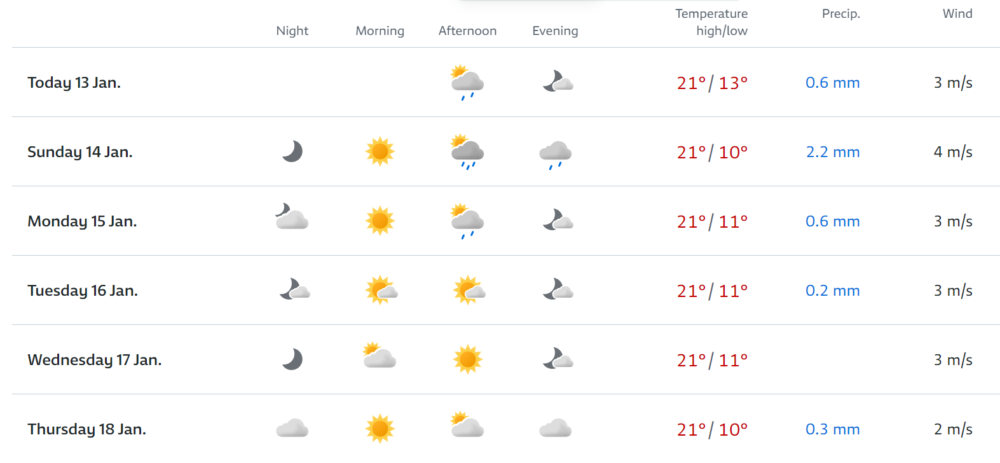
Because of these conditions, infectious diseases such as dengue fever, which is transmitted by mosquitoes, and food poisoning due to high temperatures were less likely to occur. However, as in Japan, the government recommends the wearing of masks when the weather turns cold, as the influenza epidemic is expected to spread.
No one could hide their surprise at the unforeseen situation that suddenly appeared during a relatively pleasant season with little rain. Below is the first Facebook post I saw that informed me of the situation.
The Mayor of Baguio City officially declared an outbreak of acute gastroenteritis in Baguio City at a press conference.
The headline read, “1602 cases have been reported as of the time of the announcement, and the cause is attributed to water contamination. Restaurants are advised to refrain from serving tap or filtered water and to serve only purified water to customers, and households are advised to use purified or boiled tap water and to bring their own water when eating out.
Detailed Illness Report
Two days later, a more detailed damage report was released. At this point, 3,010 people had self-reported feeling ill.
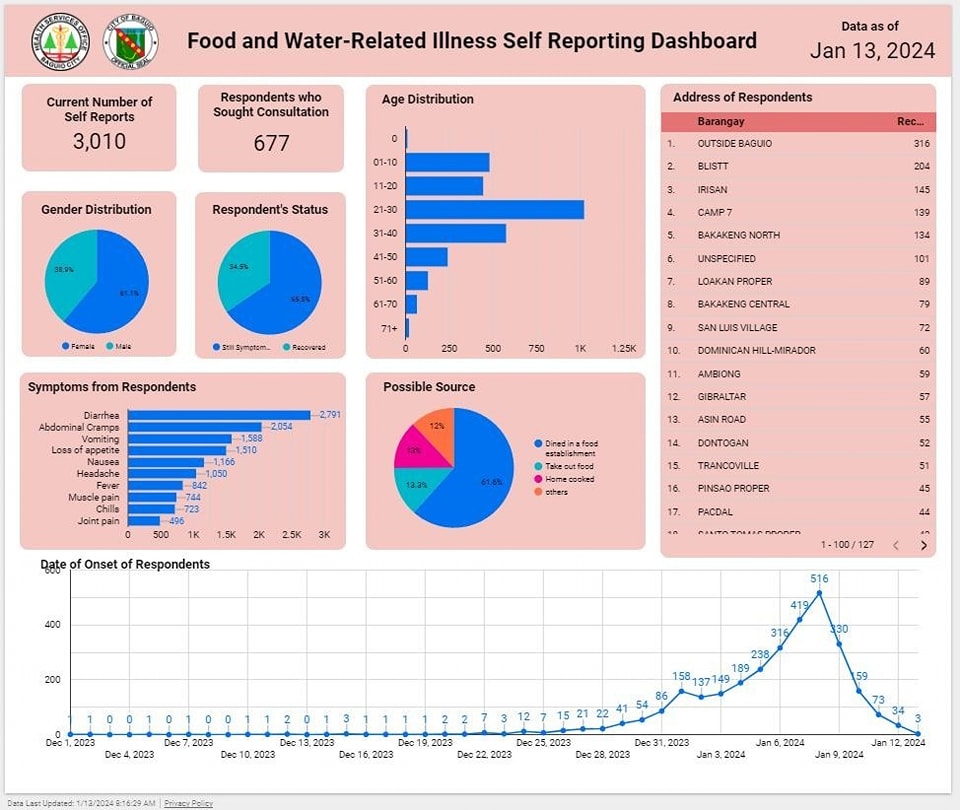
The most common symptom was diarrhea, followed by abdominal pain and vomiting. The most common cause of illness was “eating at a restaurant,” followed by “take-out” and “cooking at home. In any case, oral intake seems to be the cause in many cases.
However, so far (as of January 13), no deaths have been reported, and there have been no major changes in people’s lives.
What are the causes and countermeasures?
According to the latest information, the initial declaration of a “gastroenteritis outbreak” has been withdrawn and replaced by the phrase “widespread diarrhea. The cause of the outbreak is still under investigation, but the main factor appears to be the occurrence of bacteria in tap water and other domestic water supplies above standard levels.
Fecal contamination of Baguio water sample detected; diarrhea cases reach 2,200
https://news.abs-cbn.com/news/01/11/24/fecal-contamination-of-baguio-water-sample-detected-2200-diarrhea-cases-logged
At one of the survey sites, fecal contamination of the water source was observed, from which the bacteria outbreak was confirmed. However, the symptoms are not serious and can be resolved with medication.
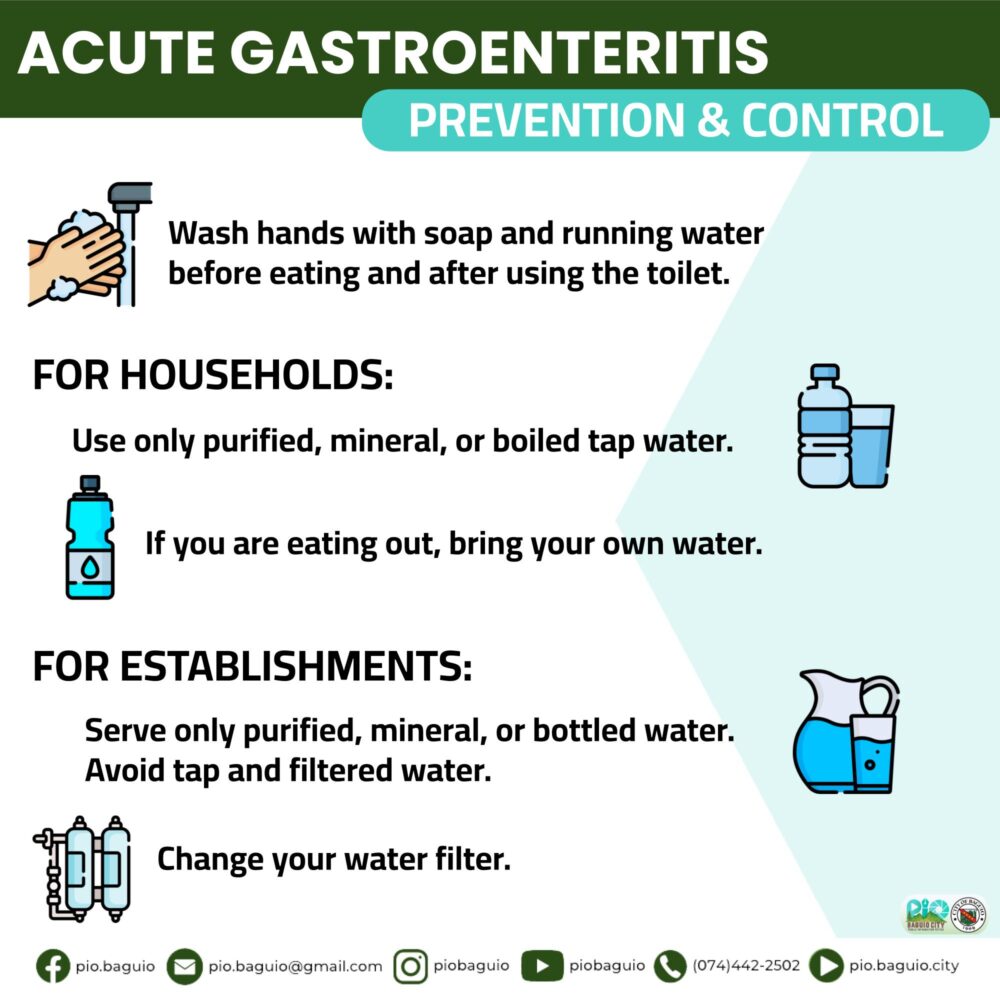
Wash hands thoroughly with soap before eating and after doing business
Drink purified, boiled tap water or mineral water regularly
Changing the filters that filter the water.
In addition, the government has issued a guide to prevent “unfair price gouging of bottled water” in response to the series of incidents. There is no such price manipulation in the city, and citizens do not seem to be running out to buy water at the moment.
Personal Opinion of a Japanese Student
From here, however, this is my personal opinion as an international student who has been living in Baguio for almost 5 months. First of all, I feel that there is no need to take any special measures as described in the previous information.

The old saying goes, “Japan is a great country where you can drink tap water straight from the tap! It is not common to drink tap water in foreign countries, as the old saying goes, “Japan is great for drinking tap water! Each lodging facility has bottled water and mineral water pumping facilities. This is of course also true in the Philippines.
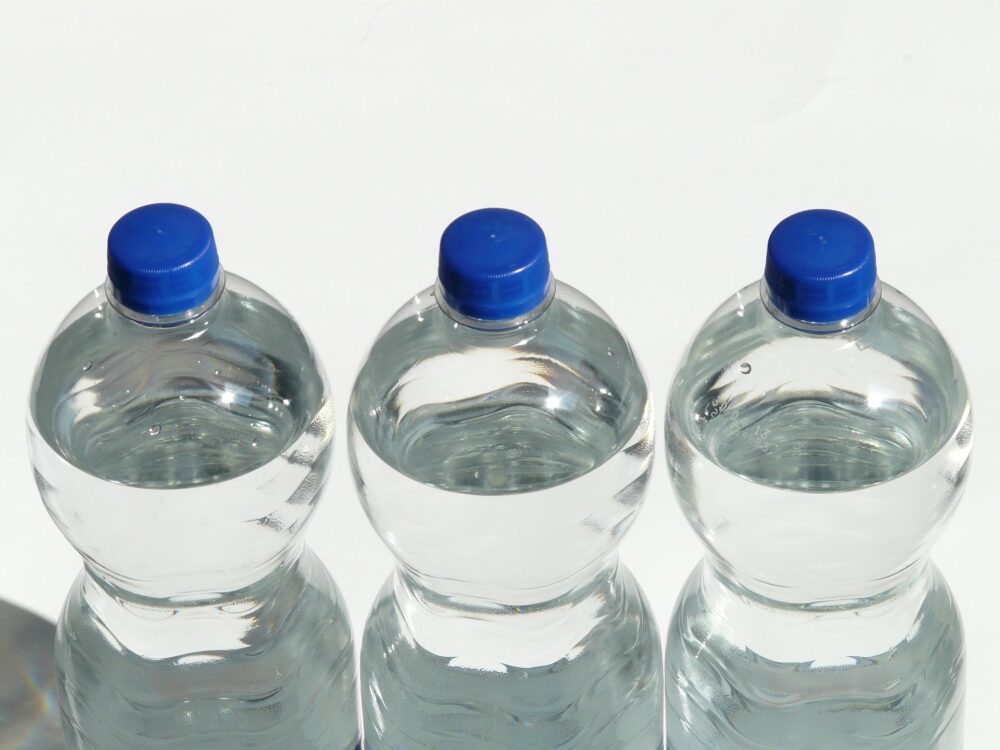
It is probably best to avoid using tap water for even minor water use such as brushing your teeth or gargling. I used to use tap water without concern, but this is an opportunity for me to change my mind. Similarly, purified water is better for washing fruits that are eaten with their skins, such as strawberries and grapes.

As for eating out, foods that have been cooked over a fire should be fine. Soups and stews are cooked thoroughly, but lugaw (porridge) is not cooked at high temperatures, so you should avoid it.
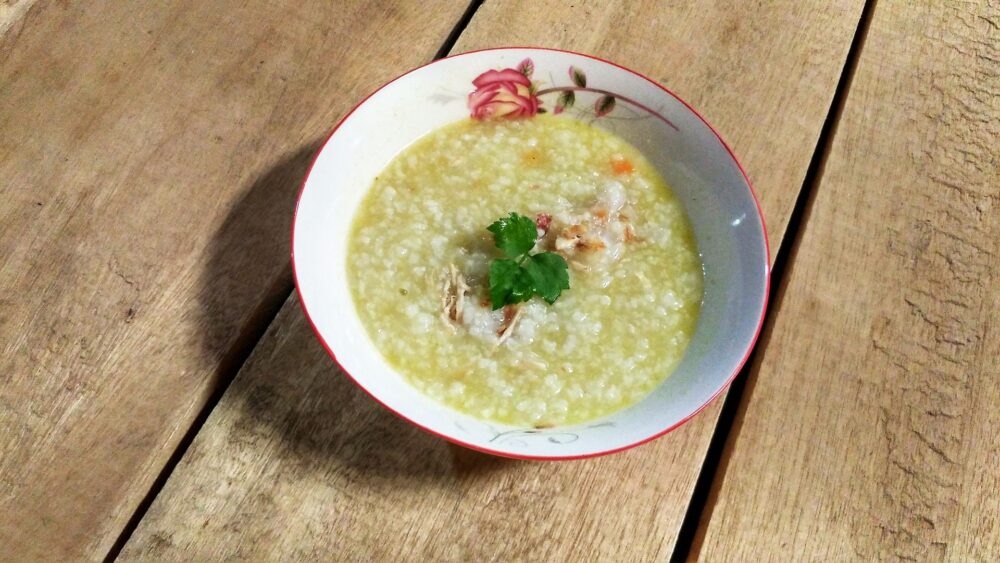
However, what you should avoid are desserts and drinks, which are difficult to cook over heat. As the government advises to bring purified water as much as possible when eating out, drinks with ice, etc. should be avoided. There are many delicious desserts such as halo-halo and milk tea, but it may be better to refrain from them for a while.
Summary
This time we reported on the urgent news about the water pollution in Baguio City. Living abroad means that we have to pay attention to these things. However, I want to make sure there is no misunderstanding, but this kind of thing rarely happens, and teachers said it was their first experience.
Incidentally, I have not received any information so far that anyone around my school, including teachers and students, have been affected. This is something that can be easily prevented if we are well prepared. Also, the response from the government agencies was quicker than I expected, and in a good way, it is a quick response that does not feel uniquely Filipino. However, there seems to be some fake news that is taking advantage of this confusion, so it is necessary to catch up with the information accurately.

To begin with, I think the risks of tap water overseas are well known to some extent, but this case has proven why we need to be careful. As a result, it does not seem to be important, but it is information that is not likely to be reported in Japan at all, so I have introduced it here.
Let us be aware of the differences between Japan and other countries so that we can live our days in good health!

